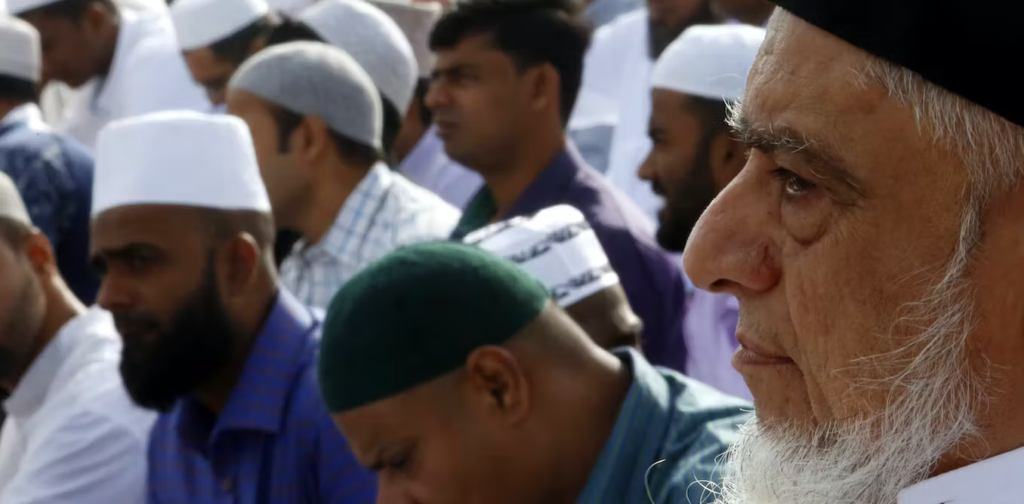The dawn of 2021 brings with it an unresolved issue that continues to cause distress among the Sri Lankan Muslim community. A religious practice ingrained in the global Islamic tradition for over fourteen centuries has been forcefully stripped away from the Sri Lankan Muslims. This infringement is based on a questionable piece of pseudo-science promoted by individuals lacking expertise, and supported by a politicized faction within the Sangha and an Islamophobic think tank influencing the ruling authorities. Despite the already devastating impact of the Covid-19 pandemic on lives, livelihoods, and the economy, those in power have cynically exploited the situation to fuel their unfounded animosity towards the beleaguered Muslim community.

When considering the interactions between the Sinhala-Buddhist and Muslim communities in Sri Lanka, the pivotal year of 2009 emerges as a significant turning point. A thousand years of ethnic and religious harmony, integration, and friendship between these two communities, briefly disrupted in 1915, began to unravel after that year. This unraveling was primarily driven by a faction of Buddhist supremacists, rather than the Muslims, who sought to sever this bond entirely. They resurrected Anagarika Dharmapala’s pre-1915 campaign, labeling Muslims as outsiders who should be expelled to Arabia. The reality, however, contradicts this narrative, as the Muslims in Sri Lanka are deeply rooted in the land and solely devoted to their country.
Admittedly, there were unfortunate developments within the Muslim community from the 1980s onwards that inadvertently distanced them from the broader Sri Lankan society. These developments were subsequently exploited by Muslim leaders for personal political gains. Past writings in this journal have addressed these concerns, advocating internal reforms to shield the community from external attacks. Regrettably, these developments provided ammunition for supremacist factions, who latched onto any pretext to launch attacks. These attacks escalated into violence, particularly from around 2013, based on unfounded reasons that remain unsubstantiated to this day.
While this was transpiring, the authorities in power chose to remain silent, allowing the supremacist campaign to thrive without opposition. This silence was motivated by sinister political agendas, as the government tacitly handed over the public platform to the purveyors of Islamophobia. Consequently, anti-Muslim violence became a disturbingly regular occurrence since 2013.
It is an undeniable fact that during outbreaks of violence, law enforcement agencies remained passive bystanders, failing to bring the culprits to justice. Even if a few were apprehended, their release often followed at the behest of influential politicians. Tragically, this one-sided violence culminated in the Easter Sunday tragedy of 2019, when a small group of Muslim extremists embarked on a suicidal mission, resulting in the deaths of nearly 250 innocent Christian worshippers. The full scope of this atrocity remains shrouded in mystery, raising questions about whether the complete truth will ever emerge.
Following this horrific incident, which the entire Muslim community unequivocally condemned, physical attacks against Muslims subsided, partly due to the commitment of the newly elected President, Gotabaya Rajapaksa, to eliminate religious extremism. However, the Muslim community’s expectations were not of special treatment, but rather a pursuit of justice, as President Rajapaksa proclaimed his intention to serve all Sri Lankan communities.

Yet, delivering on this commitment has proven to be a formidable challenge. The controversy surrounding Muslim burials epitomizes this predicament. Despite global consensus, including that of the World Health Organization (WHO), favoring burial as an option for Covid-19 victims’ families, the hardline stance of influential figures within the Viyathmaga power group and politicized Buddhist clergy impedes progress. Their preference is to enforce cremation, even for Muslim individuals who died from or were suspected of dying from Covid-19. This stance isn’t driven by scientific rationale but rather by a One-Country-One-Law ideology, in which President Rajapaksa is also involved. Consequently, a committee of experts convened to address the burial issue adjourned its initial meeting without resolution, likely due to the pressures exerted by the hardliners.
Meanwhile, signs suggest that supremacist factions are seeking a pretext to reignite violence against Muslims. The new year may witness a recurrence of incidents like the 2013 Alutgama clash, possibly this time in Mawanella, or even a revisit of the widespread violence of July 1983 against Muslims. In such instances, it’s foreseeable that peacekeeping forces might delay intervention for hours, if not days.
The Sinhala media has been cultivating a land dispute narrative between Muslims and a temple in Devangala, Mawanella, fueling fear among Muslims residing there. Recent stories surrounding the disappearance of explosive materials from a quarry and the vandalization of a Buddha statue’s glass enclosure, both in Mawanella, have been tainted with anti-Muslim bias by the media. The provocative Ven. Gnanasara, known for inciting trouble, visited Mawanella recently, echoing his presence in Alutgama in 2013 and Mullaitivu in 2019, among other hotspots. The unfolding situation in Mawanella may well become a flashpoint in the new year, possibly resulting in yet another detrimental event for the Muslim community.
Could there be a resurgence of anti-Muslim violence? The worsening economic challenges amplify this prospect, as the ruling regime seeks a distraction from mounting public discontent. In times of uncertainty, a trump card is often played. In this case, Muslims are the trump card in the power game of President Gotabaya Rajapaksa and his associates. Sacrificing the Muslim community might provoke limited protests from the Arab world, but beyond that, it’s business as usual.
Furthermore, the new year witnesses another concerning development – the increasing militarization of the country. President Rajapaksa has appointed 25 Major Generals, each assigned to a district, to oversee pandemic control efforts. This move raises questions about the gradual militarization of district administration and where the trajectory of the nation is headed.
Written By – Malki Perera



